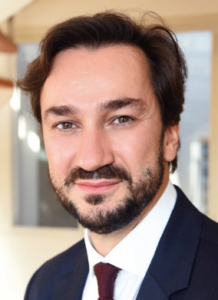Global Law Experts top search results to tackle law in France: Tailored solutions for every legal challenge. Let experienced lawyers guide you through legal disputes and challenges with law insights and expertise knowledge. Our members hold proven strategies and solutions for every complex legal need.

Since 2010, the Global Law Experts annual awards have been celebrating excellence, innovation and performance across the legal communities from around the world.






































No results available Reset filters?
Global Law Experts highlights the best lawyers in France, distinguished for their expertise in corporate law, commercial litigation, intellectual property, tax, arbitration, and cross-border transactions. In a nation central to European business and international trade, French lawyers combine deep knowledge of civil law traditions with practical, industry-focused solutions. Global Law Experts connects clients with top legal professionals in France, offering trusted guidance, strategic advice, and effective representation across complex legal challenges.
In France, the legal profession is unified under the title avocat, who advises and represents clients in court. However, specialization exists: some avocats focus on civil law (family, contracts, real estate), others on criminal defense, business and commercial law, tax law, or international and EU law. Avocats may also obtain official specialization certificates in recognized practice areas.
In France, divorce can occur through several types: divorce by mutual consent (fastest, often without court if no children or property disputes), accepted divorce (both agree to end marriage but not on terms), divorce for fault (one spouse proves serious misconduct), and divorce for breakdown of marriage (after at least two years of separation). Each follows different legal procedures and implications.
Foreigners generally do not need a special permit to buy property in France. The French property market is open to both EU and non-EU citizens, and foreigners enjoy the same ownership rights as locals. However, buyers must follow standard legal procedures, including signing contracts before a notaire, paying taxes, and ensuring compliance with residency or visa requirements if planning to live in the property.
In France, the legal standard workweek is 35 hours, though employers may set longer schedules with overtime pay. Overtime is typically capped at 220 hours per year unless covered by agreements, with pay at 125% for the first 8 extra hours and 150% beyond. Some sectors have specific rules, and employees are also entitled to daily and weekly rest periods to protect work-life balance.
A foreign citizen starting a business in France must choose a legal structure (such as SARL, SAS, or sole proprietorship), register with the Centre de Formalités des Entreprises, and obtain a SIREN number. Non-EU/EEA nationals generally need a residence permit with business authorization. Compliance with French tax, labor, and social security laws is also required to operate legally.
In France, an avocat is a legal professional who represents clients in court, provides legal advice, and advocates in disputes, while a notaire is a public officer who handles official documents, property transactions, wills, and family law matters. Notaires ensure contracts are legally binding and enforceable, whereas avocats focus on advocacy and litigation. Both roles are distinct but complementary.
France is a civil law country, with its legal system based on the Napoleonic Code of 1804. Laws are codified into comprehensive statutes that judges apply rather than create, unlike in common law systems where precedent plays a central role. French civil law emphasizes written legislation, making it one of the most influential models for many legal systems worldwide.
Inheritance law in France is governed by the civil code and is based on the principle of forced heirship, meaning certain heirs (such as children) are legally entitled to a reserved share of the estate, regardless of the deceased’s wishes. While a portion of assets can be freely disposed of, the reserved share ensures family protection, making French inheritance rules strict compared to other jurisdictions.
To obtain a long-stay visa in France, foreigners must apply before arrival and provide valid travel documents, proof of financial means, health insurance, and accommodation in France. Depending on the visa type—work, study, family reunification, or visitor—additional documents may be required. Approval allows residence beyond 90 days and often requires later conversion to a residence permit.
In France, “forced heirship” is a key principle of inheritance law under the Civil Code. It guarantees that a fixed portion of an estate—called the réserve héréditaire—must go to the deceased’s children (or spouse if no children exist), regardless of the will. The disposable portion (quotité disponible) is what can be freely left to others. This ensures family protection but limits testamentary freedom.
Global Law Experts is dedicated to providing exceptional legal services to clients around the world. With a vast network of highly skilled and experienced lawyers, we are committed to delivering innovative and tailored solutions to meet the diverse needs of our clients in various jurisdictions.

Send welcome message